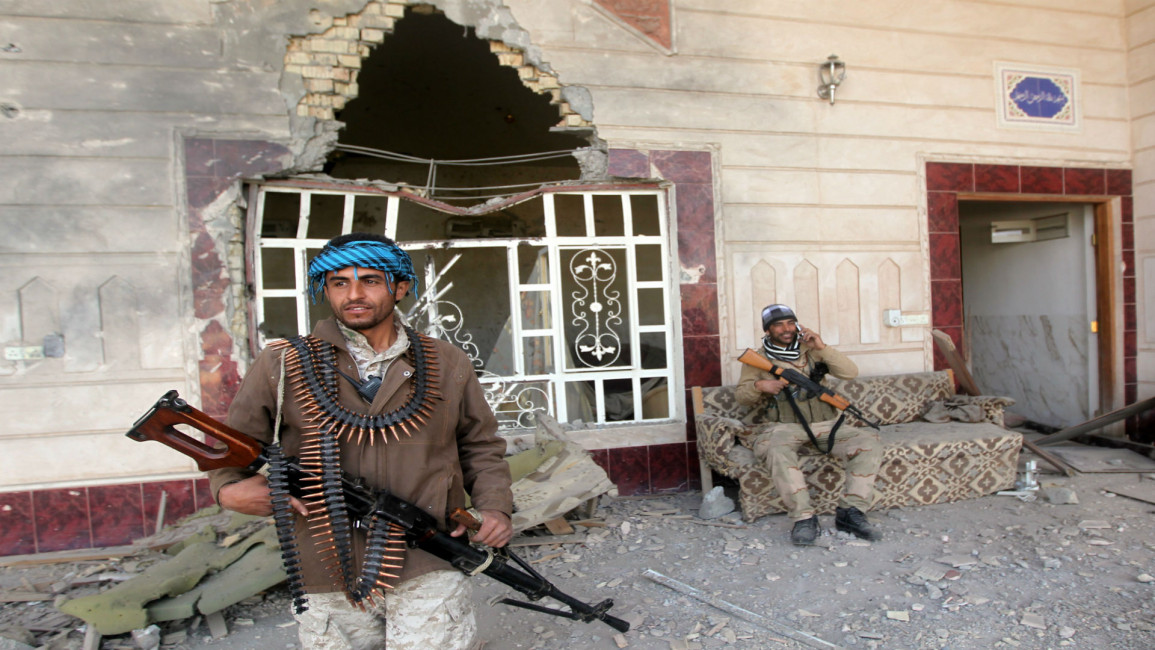Sunni tribal militia 'torturing detainees' in Mosul offensive
Men and boys from Iraqi villages recaptured from the Islamic State group (IS) in the operation to retake Mosul have been unlawfully detained, tortured and ill-treated by a Sunni tribal militia, Amnesty International said Thursday.
The Hashed al-Ashaeri (Tribal Mobilization), made up of Sunni tribal militiamen, have been carrying out revenge attacks in villages south-east of Mosul against those residents suspected of having ties to IS, the London-based rights group said.
Some were beaten with metal rods and given electric shocks, and some were tied to the bonnets of vehicles and paraded through the streets or placed in cages, it said, citing interviews with local officials and village witnesses.
"There is strong evidence that Sabawi tribal militia members have committed crimes under international law by torturing and otherwise ill-treating residents in Qata al-Sabaween (Sabaween sector) in revenge for crimes committed by ISIS," said Lynn Maalouf, Amnesty's deputy director for research in Beirut, using an alternate acronym for IS.
In one of the affected villages, al-Makuk, eyewitnesses said tribal entered the village before the Iraqi army arrived but after IS fighters had retreated.
According to the residents, the fighters who belong to the same tribe as the villagers, started rounding up men and older boys as soon as they arrived.
One witness described how six militia members dragged a man into the courtyard of his house and accused his brother of having ties with IS before brutally beating him in front of his wife and children.
“They kicked him to the ground and 'tasered' him three times. They punched him and beat him with the back of their Kalashnikovs, with metal rods, and even a rubber hose – the thick ones used for agriculture,” the witness said.
Other witnesses said the fighters did not have commanders, but were driven by their own vendettas against certain members of their own tribe.
"There is no doubt that ISIS fighters who are suspected of committing crimes must be held accountable in fair trials," said Maalouf.
"But rounding up villagers and forcing them to endure public humiliation or other violations, including torture, is no way of securing justice, truth and reparation for victims of ISIS crimes."
Amnesty warned in a report on October 18 about the possibility of revenge attacks directed at people suspected of being complicit with IS, urging Iraqi authorities to act to prevent a repeat of past abuses.
Agencies contributed to this report



